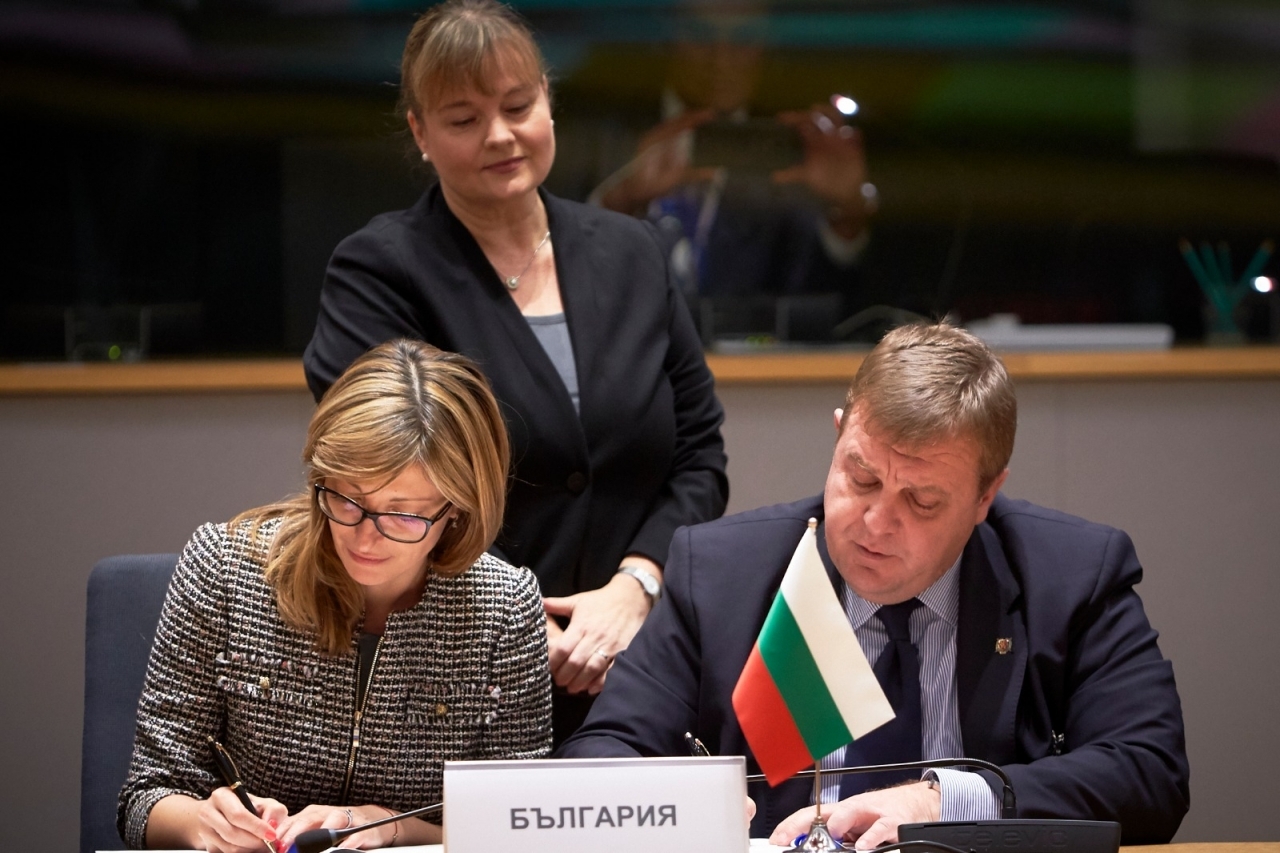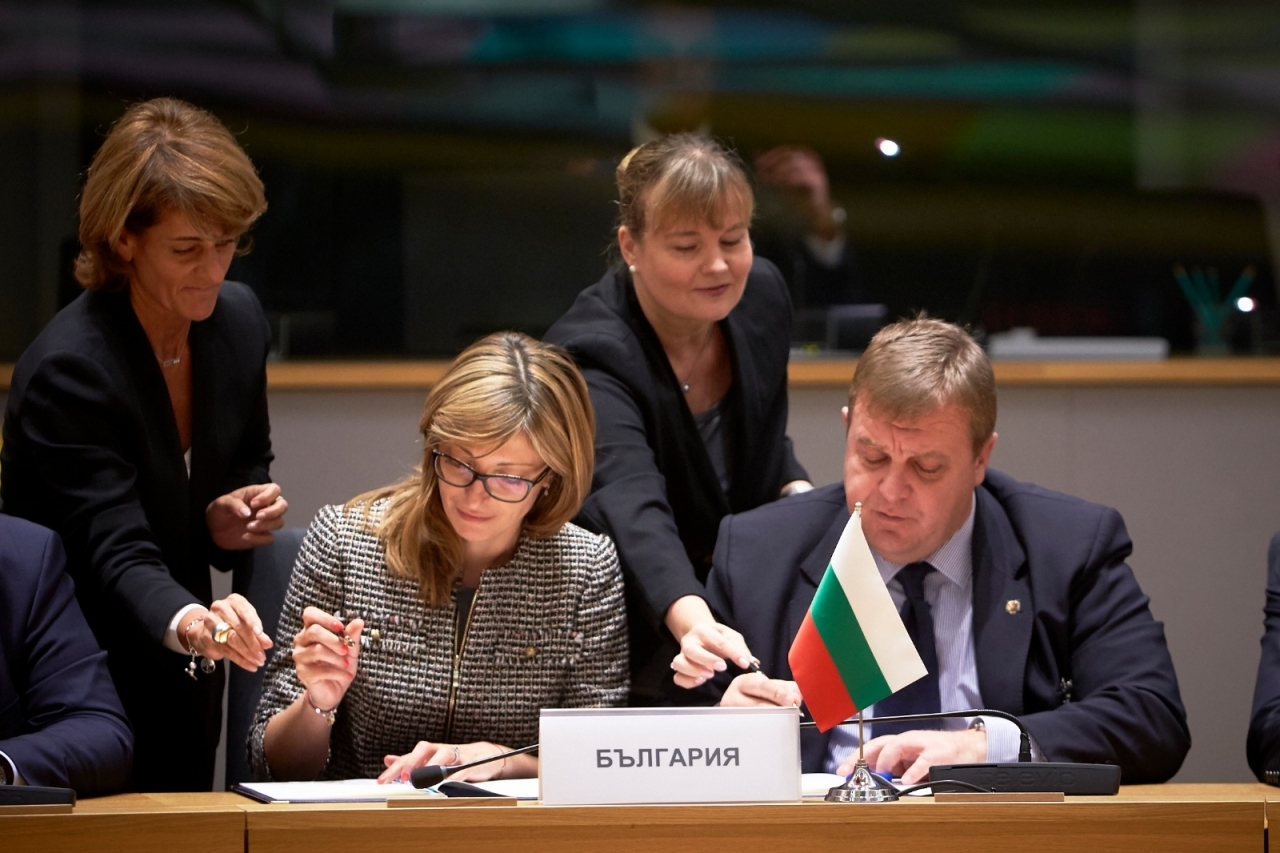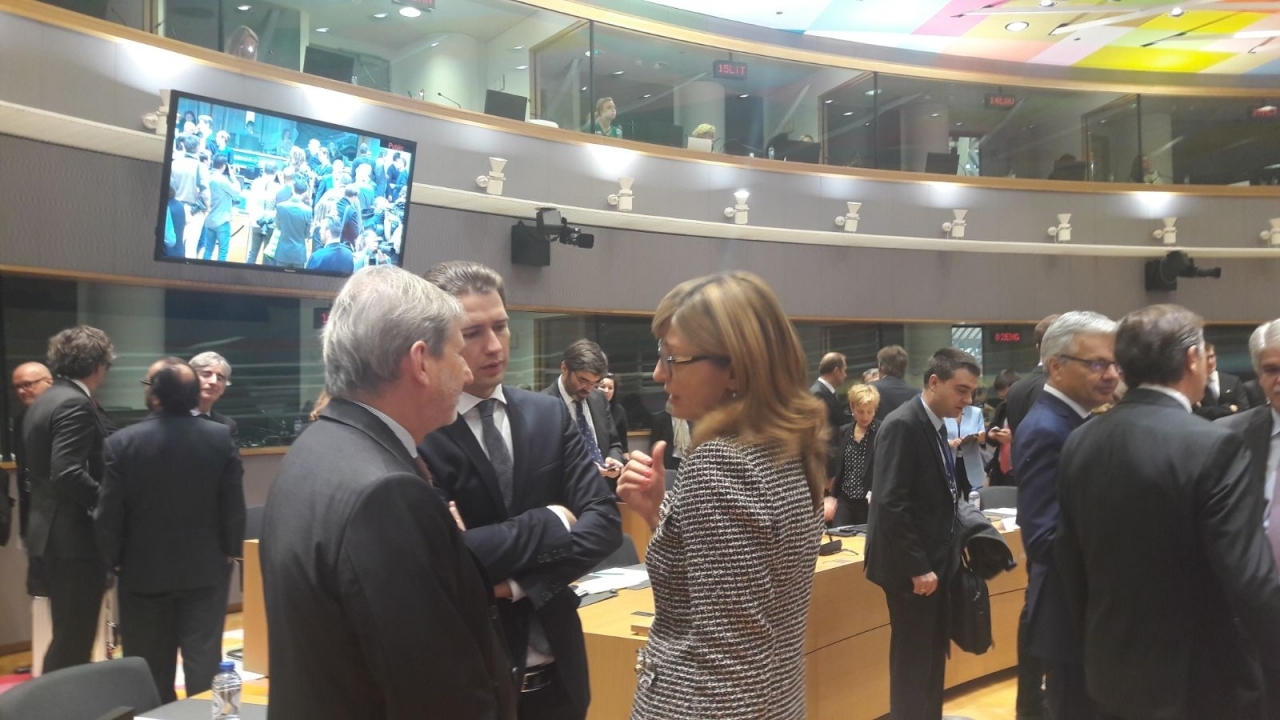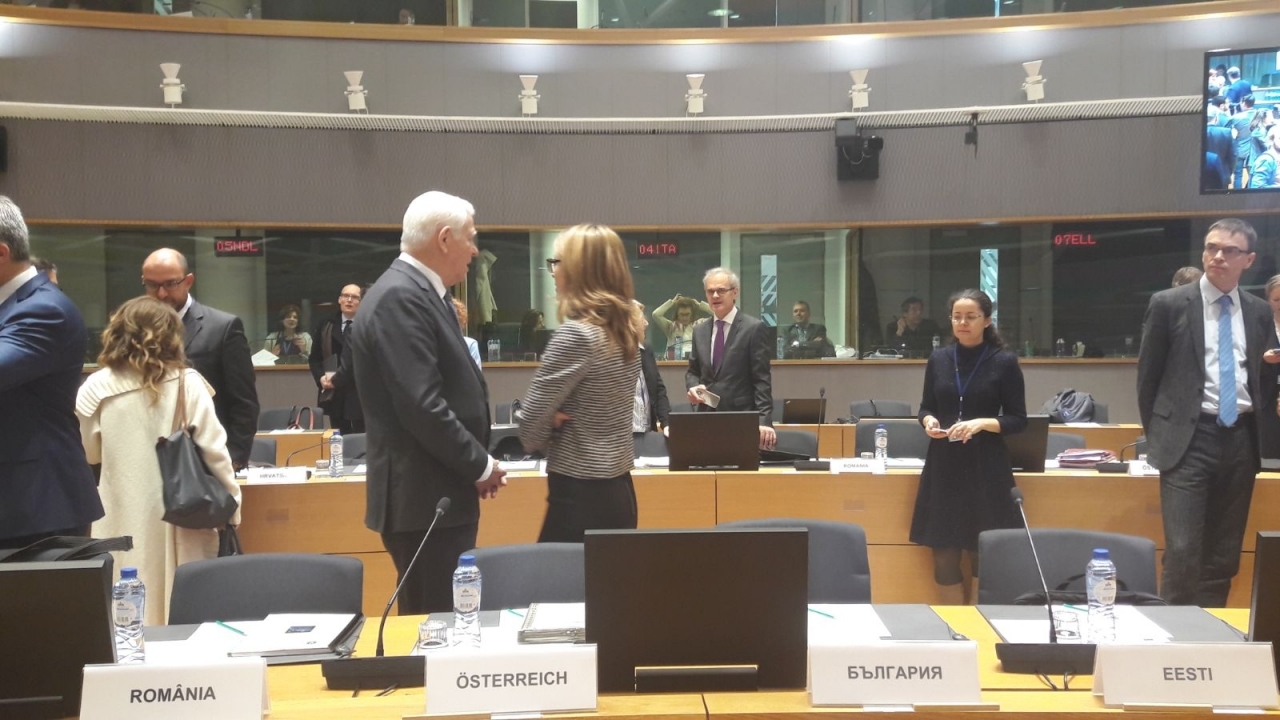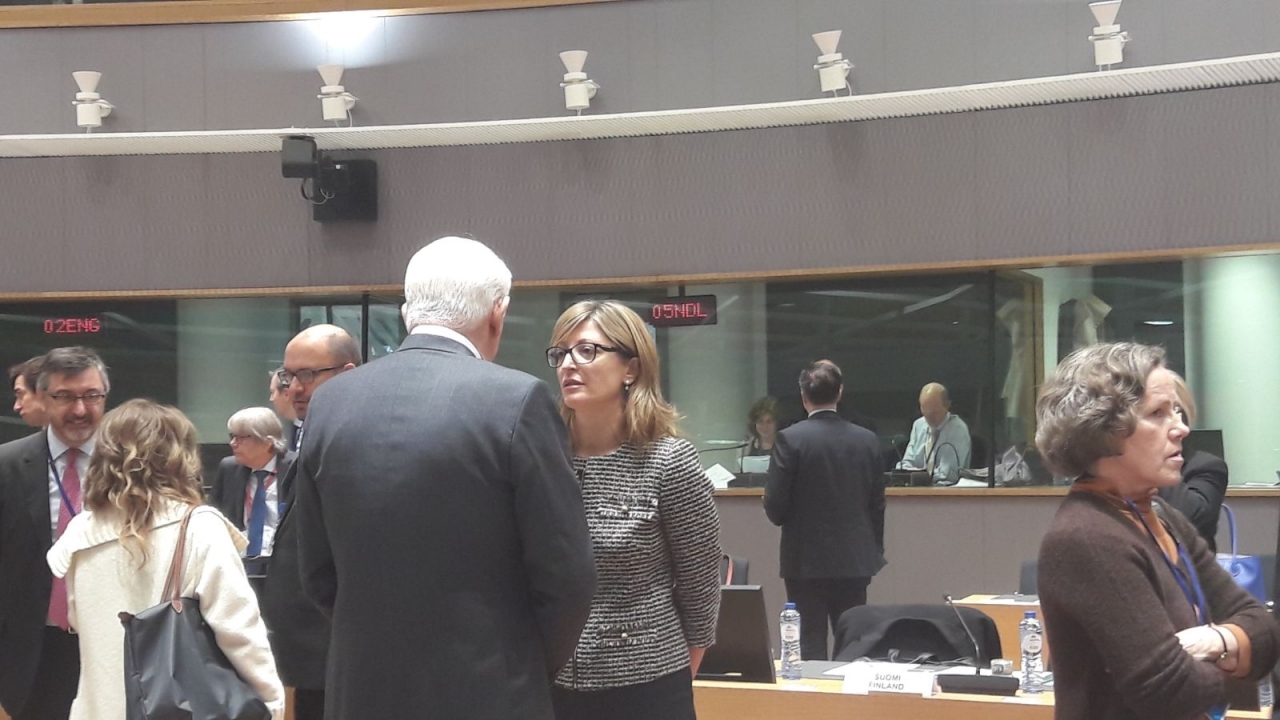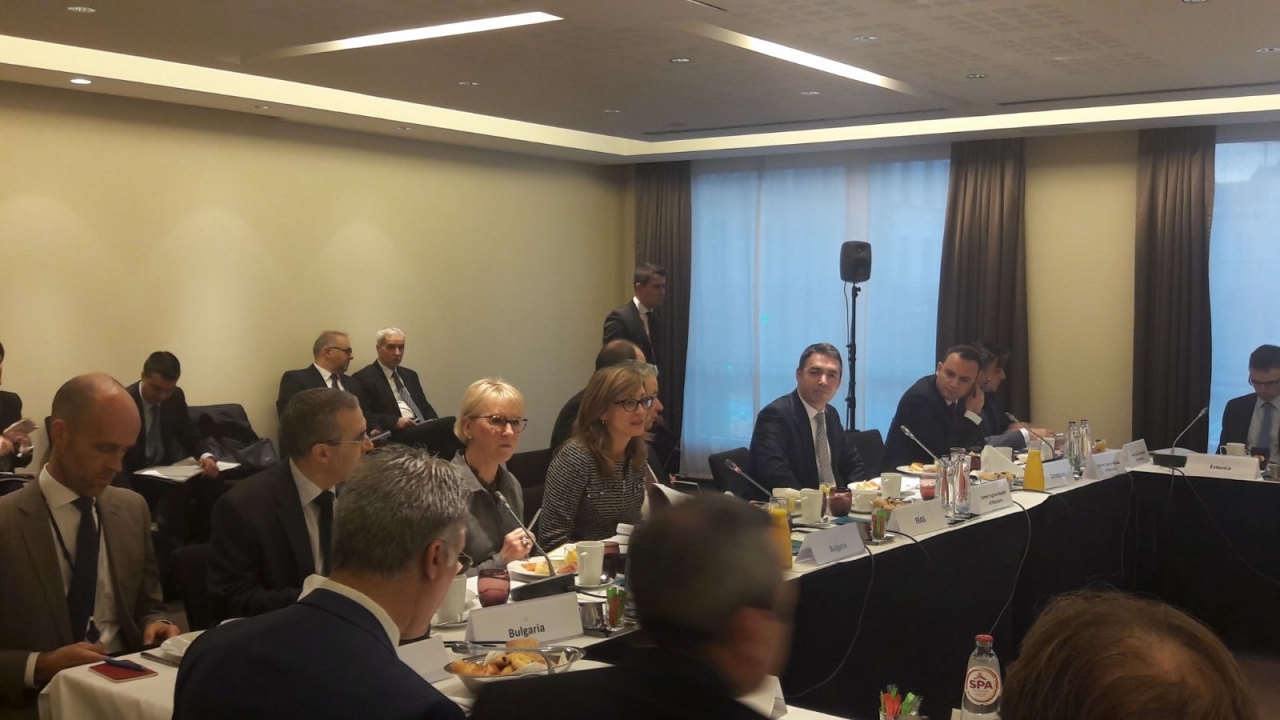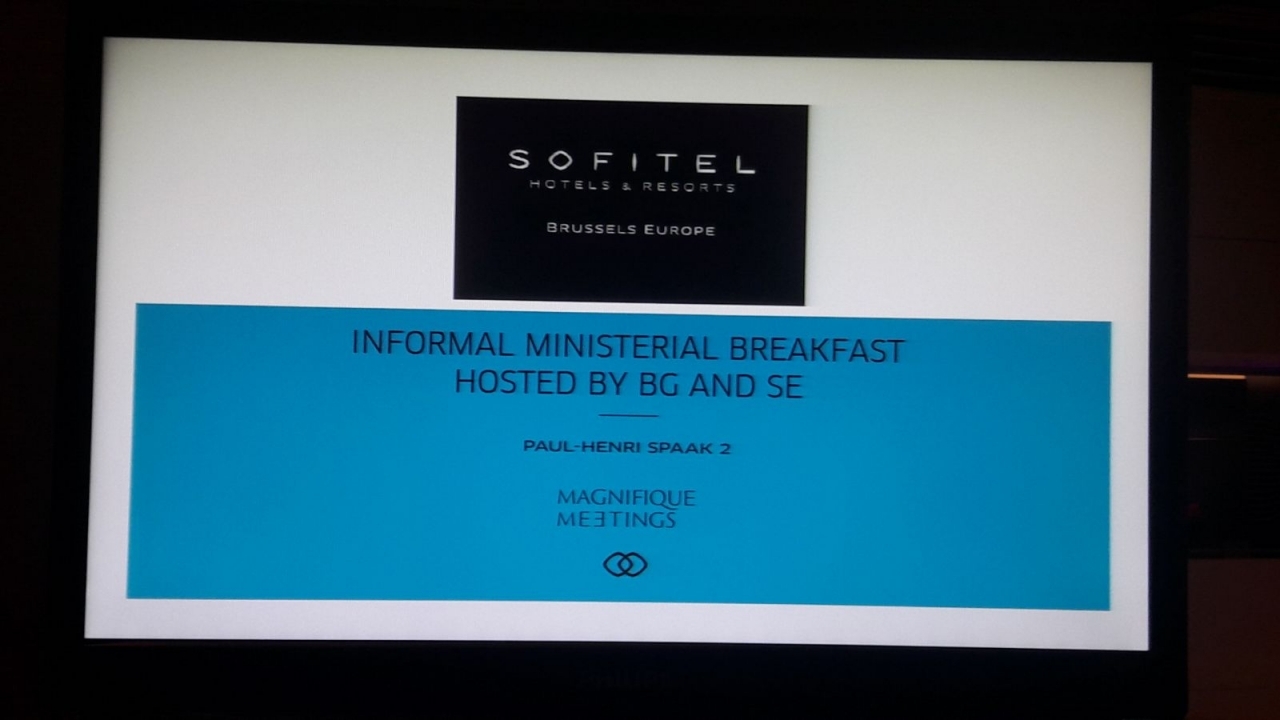Bulgaria and 22 other Member States signed a joint notification on the Permanent Structured Cooperation
13 November 2017 News
Bulgaria and another 22 Member States today signed a joint notification on the Permanent Structured Cooperation (PESCO). The formal ceremony took place within the framework of the Foreign Affairs Council which met in Brussels. Deputy Prime Ministers Ekaterina Zaharieva and Krasimir Karakachanov signed the notification for Bulgaria.
The Permanent Structured Cooperation is intended to facilitate the development of Member States’ defence capabilities, including through the establishment of a European Defence Fund to finance particular projects. The PESCO demonstrates the resolve to strengthen European security and defence in response to the new geopolitical challenges.
The EU-28 foreign and defence ministers discussed progress in the implementation of the EU Global Strategy in the area of security and defence. They also considered opportunities for further development of cooperation with NATO, including in counter-terrorism. Bulgaria welcomes the steps taken towards the implementation of the Global Strategy through the launch of the PESCO. “We must develop this initiative in the most transparent, comprehensive and ambitious way possible so as to contribute to the enhancement of EU security and to facilitate a strengthening of NATO capabilities,” Minister Ekaterina Zaharieva said, addressing the Council.
Foreign Ministers discussed the preparations for the 5th African Union – EU Summit, due to take place in Abidjan on 29-30 November, which is intended to intensify political and economic contacts between the two continents. The chief EU diplomats stressed the importance of the Summit taking place and expressed support for the topics on top of its agenda: investing in youth and job creation, peace and security, migration, etc.
The foreign ministers of the Twenty-Eight also took stock of the current work on EU strategic communications, stressing the importance of countering disinformation, but also of conveying positive messages and explaining the benefits of the policies implemented by the EU. “Achieving tangible results in the field of strategic communications requires finding the right geographical balance, the necessary financing, and the appropriate experts,” the Bulgarian Foreign Minister said.
Ahead of the Foreign Affairs Council, Minister Ekaterina Zaharieva and Sweden’s Minister of Foreign Affairs Margot Wallström hosted a working breakfast for the Minister of Foreign Affairs of the Republic of Macedonia Nikola Dimitrov and Deputy Prime Minister Bujar Osmani. Minister Dimitrov presented the efforts of the new Government of the Republic of Macedonia to give a fresh impetus to the country’s European integration by speeding up reforms and establishing good-neighbour relations.

